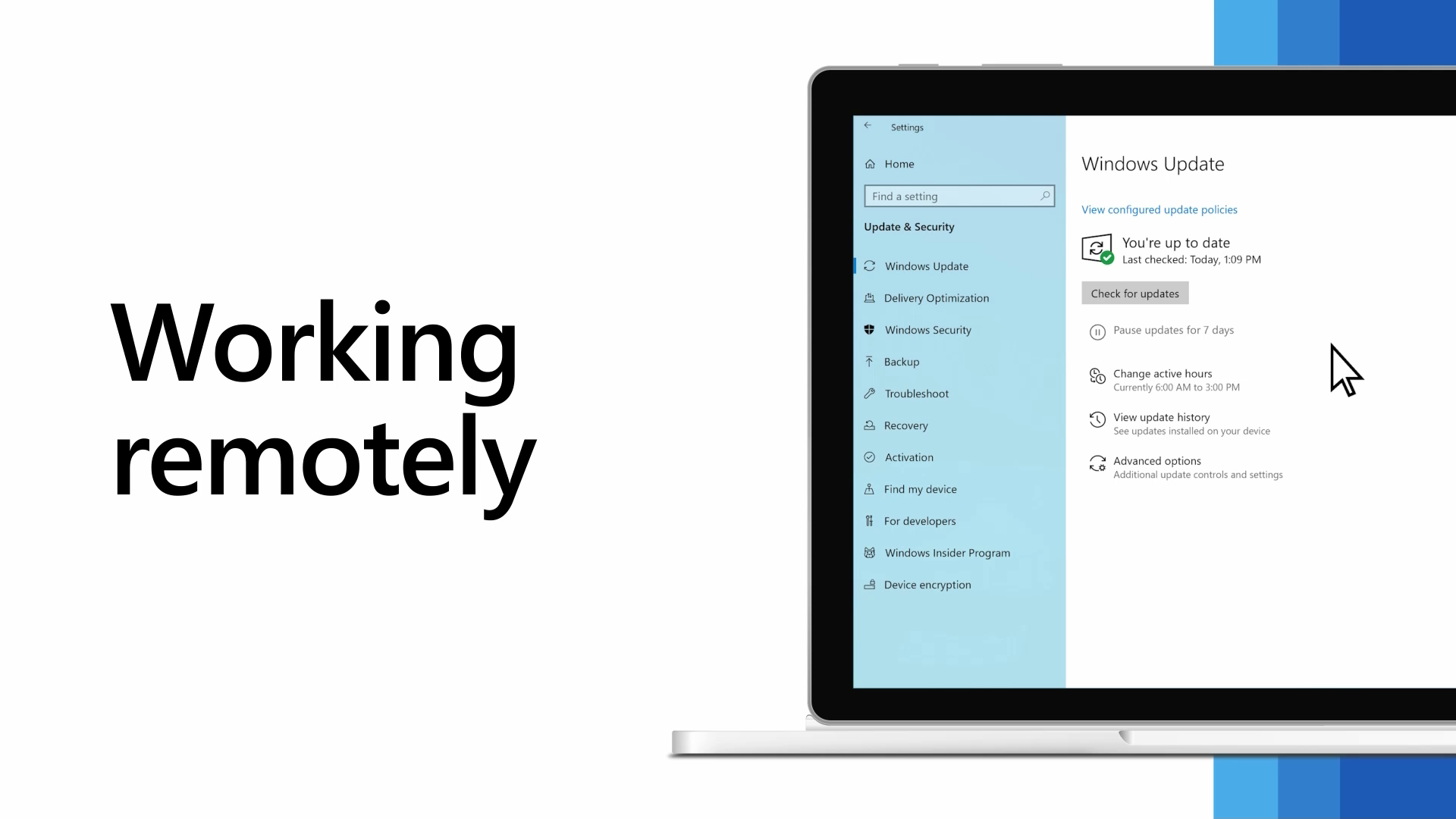How can I protect my computer security?
Summary:
What 3 things can help to protect the security of your computer?
Antivirus software, antispyware software, and firewalls are also important tools to thwart attacks on your device. Keep up-to-date. Antivirus software. Antispyware software. Firewalls. Choose strong passwords. Use stronger authentication. Be careful what you click. Shop safely.
What is the best security to put on your computer?
Bitdefender Antivirus Plus. Best Overall Antivirus. McAfee AntiVirus Plus. Best for Multi-Device Households. ESET NOD32 Antivirus. Best for Techies. G Data Antivirus. Best for Breadth of Features. Malwarebytes Premium. Best for Speedy Scans. Norton AntiVirus Plus. Sophos Home Premium. Webroot AntiVirus.
How do I keep my computer data safe and secure?
11 practical ways to keep your IT systems safe and secure. Back up your data. Use strong passwords and multi-factor authentication. Be aware of your surroundings. Be wary of suspicious emails. Install antivirus and malware protection. Protect your device when it’s unattended. Make sure your Wi-Fi connection is secure.
How do I secure my desktop computer?
Keep your computer secure at home. Use a firewall. Keep all software up to date. Use antivirus software and keep it current. Make sure your passwords are well-chosen and protected. Don’t open suspicious attachments or click unusual links in messages. Browse the web safely. Stay away from pirated material.
What are three 3 security issues that every computer user should be aware of?
Viruses, worms, Trojans, and spam are ubiquitous, but they are just the tip of the iceberg. Other common information security threats include privilege escalation, spyware, adware, rootkits, botnets, and logic bombs.
What are the 3 A’s of computer security?
Authentication, authorization, and accounting (AAA) is a security framework that controls access to computer resources, enforces policies, and audits usage.
Do you really need security on a computer?
Antivirus software is necessary in most cases, and the best pieces of antivirus software are those that can protect multiple devices at the same time.
Does Norton protect from hackers?
Software such as Bitdefender, McAfee, Norton Antivirus, and VIPRE prevents hackers. There is no way to guarantee that hackers won’t penetrate your devices, but these methods significantly decrease the likelihood of a hacking.
Why is my computer not secure?
It means that your browser can’t verify the SSL certificate of the website you’re trying to visit. In other words, your browser shows you this message when it isn’t sure if the website will securely encrypt your data.
What is the most common factor in computer security issues?
Social engineering attacks (or phishing). Most security breaches are due to social engineering — where criminals trick people into giving out confidential information, clicking on malicious links, or providing entry to secure systems.
What are the 4 pillars of computer security?
Every security posture is built on four pillars: Prevention: Preparing and training before a threat/attack. Protection: Stopping a known threat/attack. Detection: Detecting an unknown threat/attack. Response: Taking action towards a threat/attack.
What 3 things can help to protect the security of your computer
Antivirus software, antispyware software, and firewalls are also important tools to thwart attacks on your device.Keep up-to-date.Antivirus software.Antispyware software.Firewalls.Choose strong passwords.Use stronger authentication.Be careful what you click.Shop safely.
CachedSimilar
What is the best security to put on your computer
OVERVIEWBitdefender Antivirus Plus. Best Overall Antivirus.McAfee AntiVirus Plus. Best for Multi-Device Households.ESET NOD32 Antivirus. Best for Techies.G Data Antivirus. Best for Breadth of Features.Malwarebytes Premium. Best for Speedy Scans.Norton AntiVirus Plus.Sophos Home Premium.Webroot AntiVirus.
How do I keep my computer data safe and secure
11 practical ways to keep your IT systems safe and secureBack up your data.Use strong passwords and multi-factor authentication.Be aware of your surroundings.Be wary of suspicious emails.Install anti-virus and malware protection.Protect your device when it's unattended.Make sure your Wi-Fi connection is secure.
How do I secure my desktop computer
Keep your computer secure at homeUse a firewall.Keep all software up to date.Use antivirus software and keep it current.Make sure your passwords are well-chosen and protected.Don't open suspicious attachments or click unusual links in messages.Browse the web safely.Stay away from pirated material.
Cached
What are three 3 security issues that every computer user should be aware of
Viruses, worms, Trojans, and spam are ubiquitous, but they are just the tip of the iceberg. Other common information security threats include privilege escalation, spyware, adware, rootkits, botnets, and logic bombs.
What are the 3 A’s of computer security
Authentication, authorization, and accounting (AAA) is a security framework that controls access to computer resources, enforces policies, and audits usage.
Do you really need a security in computer
Antivirus software is necessary in most cases, and the best pieces of antivirus software are those that can protect multiple devices at the same time.
Does Norton protect from hackers
Software such as Bitdefender, McAfee, Norton Antivirus, and VIPRE prevents hackers. There is no way to guarantee that hackers won't penetrate your devices, but these methods significantly decrease the likelihood of a hacking.
Why is my computer not secure
It means that your browser can't verify the SSL certificate of the website you're trying to visit. In other words, your browser shows you this message when it isn't sure if the website will securely encrypt your data.
What is the most common factor in computer security issues
Social engineering attacks (or phishing)
Most security breaches are due to social engineering — where criminals trick people into giving out confidential information, clicking on malicious links, or providing entry to secure systems.
What are the 4 pillars of computer security
Every security posture is built on four pillars:Prevention: Preparing and training before a threat/attack.Protection: Stopping a known threat/attack.Detection: Detecting an unknown threat/attack.Response: Taking action towards a threat/attack.
What are the three 3 major areas of security
There are three primary areas or classifications of security controls. These include management security, operational security, and physical security controls.
How can I tell if I have security on my computer
The status of your antivirus software is typically displayed in Windows Security Center. Open Security Center by clicking the Start button , clicking Control Panel, clicking Security, and then clicking Security Center.
Do you need antivirus if you have Windows security
Antivirus is necessary even if you're on a Mac or Windows device, which both come with some level of virus protection built in. For total protection with endpoint protection and response, and blocks against malware and potentially unwanted programs, it's best to install a third-party antivirus software.
What are the signs of being hacked
Some of the most common signs of a hack are as follows.Password reset emails.Random popups.Contacts receiving fake emails or text messages from you.Redirected internet searches.Computer, network, or internet connection slows down.Ransomware messages.
How do you know if your computer is being hacked
Frequent pop-up windows, especially the ones that encourage you to visit unusual sites, or download antivirus or other software. Changes to your home page. Mass emails being sent from your email account. Frequent crashes or unusually slow computer performance.
What does it mean if a connection is not secure
What does 'Your connection to this site is not secure' mean In Chrome, this message appears when clicking on the "Not Secure" in the browser bar when on an HTTP site. It means that the website does not have an SSL certificate and does not use SSL/TLS for encrypting traffic to and from the site.
Why is my browser saying everything is not secure
A website that is not secure means that the connection between the website and your web browser is not encrypted. This means that any information you enter on the website, such as passwords, credit card numbers, or personal information, could potentially be intercepted by a third party.
What are the 4 main concerned areas of computer security
The security precautions related to computer information and access address four major threats: (1) theft of data, such as that of military secrets from government computers; (2) vandalism, including the destruction of data by a computer virus; (3) fraud, such as employees at a bank channeling funds into their own …
What is the 3 major aspect of security
Confidentiality, integrity and availability together are considered the three most important concepts within information security. Considering these three principles together within the framework of the "triad" can help guide the development of security policies for organizations.
What are the six basic security concepts
The six basic security concepts that need to be covered by security testing are: confidentiality, integrity, authentication, availability, authorization and non-repudiation.
What are the 3 A’s of information security
Authentication, Authorization, and Accounting (AAA) is a three-process framework used to manage user access, enforce user policies and privileges, and measure the consumption of network resources.
Is Windows Defender enough or do I need an antivirus
Is Windows Defender good enough Yes, Windows Defender is a good basic virus protection software. You may not find everything you want if you are extremely security focused. A third-party antivirus or anti-malware software will likely find threats that Windows Defender may miss.
Does Windows 10 have a built in antivirus
For the best protection, we suggest subscribing to one of our Best Antivirus Software Companies of 2023. However, Windows 10 and Windows 11 come with built-in antivirus protection called Microsoft Defender, which is better than nothing.
What happens if you don’t have antivirus on your computer
Lost Data. The most obvious consequence for poor or nonexistent virus protection is lost data. One employee clicking a malicious link can infect your entire computer system with a destructive virus that can shut down your network, wipe your hard drives, and spread to other companies and clients through the Internet.




0 Comments